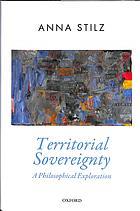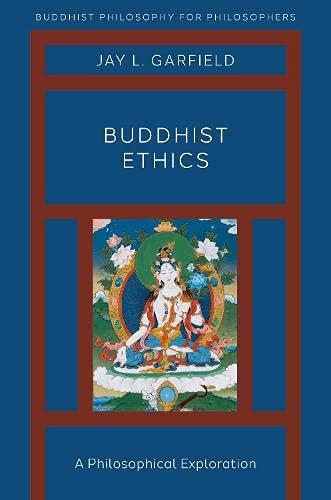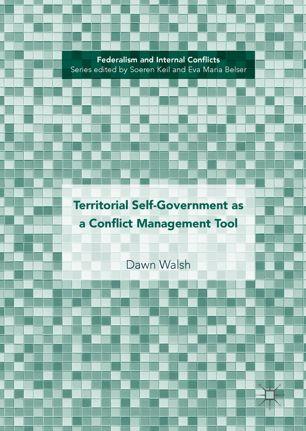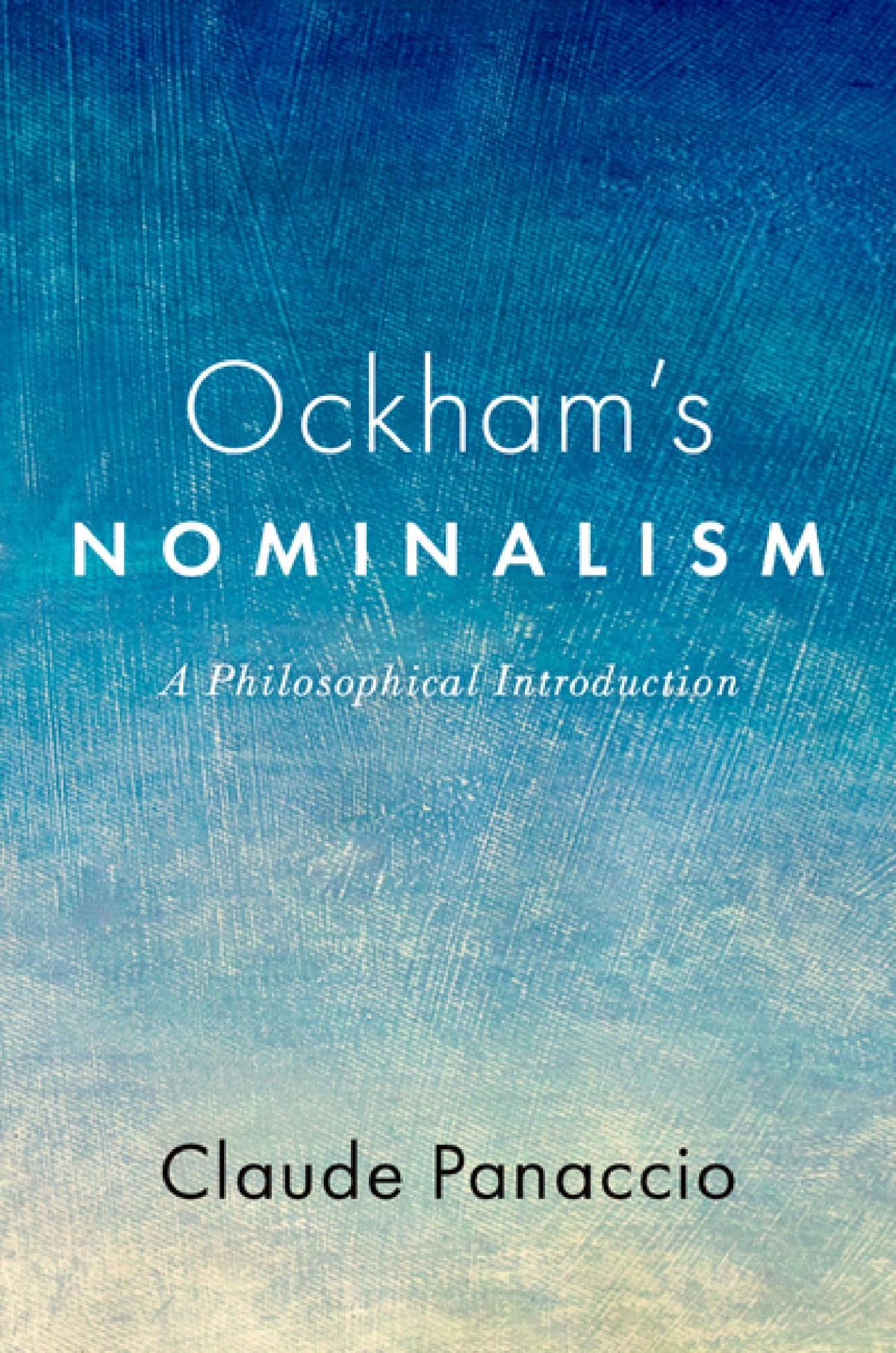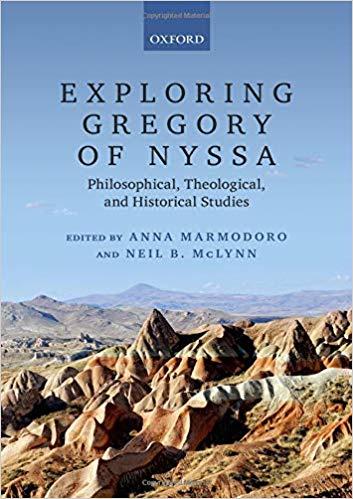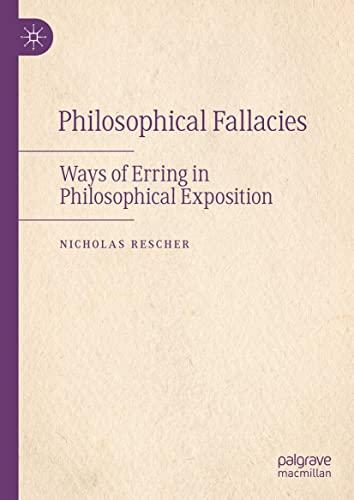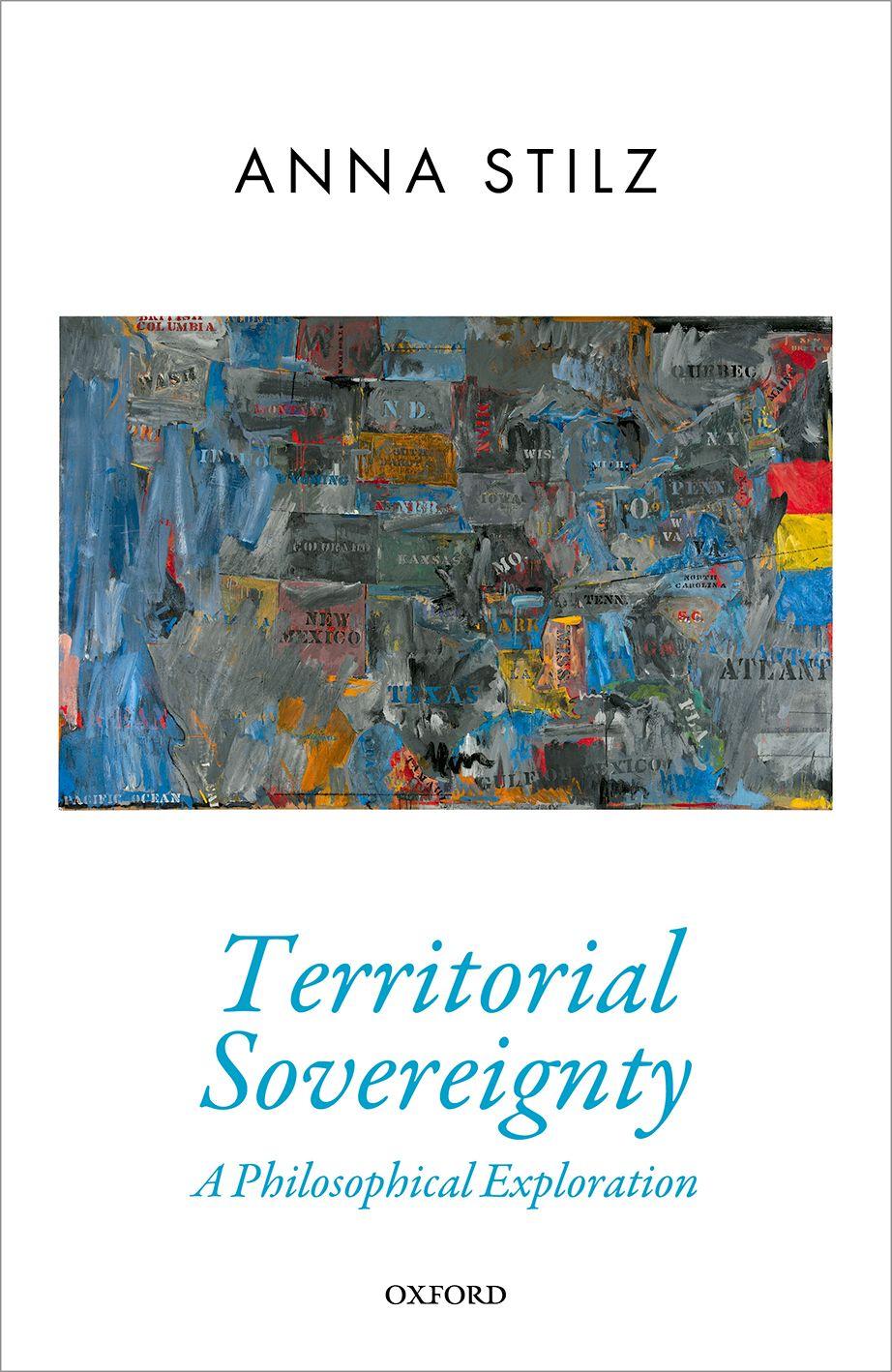Introduction: The Normative Bases for Territorial Sovereignty
A deep fact about our political world is that it is a world of sovereign territorial states. According to the 1933 Montevideo Convention, a state under international law is an entity that possesses a permanent population, a defined territory, a government, and the capacity to enter relations with other states.1 Familiar debates about political legitimacy, authority, and obligation focus on whether these states have the right to make, interpret, and enforce law vis-à-vis their subjects. Does the state have a permission to use coercion or force to regulate its subjects’ conduct? Does the state have a right to be obeyed when it issues directives? Do citizens have a right to engage in civil disobedience or, in seriously unjust circumstances, to attempt violent resistance or revolution? These well-worn controversies all address the state’s internal legitimacy—its right to exercise political power over its own members.2
But modern states do not only claim rights against their own members. They also claim rights against outsiders and, especially, rights to independent control over a particular territory. These claimed rights take four principal forms. First, sovereign states claim the right to territorial jurisdiction: the right to issue legal directives and to coercively regulate the activities of people situated in a particular geographical space. Second, states claim the right to nonintervention: the exclusive right to govern an area and its population free from interference or efforts at “regime change” on the part of foreign states, individuals, or groups. Third, states claim the right to control their borders: to regulate the movement of people and goods across their territories. Fourth, states claim resource rights: most states attempt to regulate the use and extraction—and sometimes to profit from the sale or taxation—of minerals, oil, and other natural resources in their territories.3 Many of these claimed territorial rights exclude foreigners from undertaking various activities within a particular portion of the globe. Yet while there is a long tradition
1 Seventh International Conference of American States, Montevideo Convention on the Rights and Duties of States (1933).
2 I define the state’s “members” as its citizens and permanent residents, including unauthorized migrants long resident on the state’s territory, who, in my view, have a moral claim to become citizens. “Outsiders” include foreign individuals not resident on the state’s territory, as well as foreign states.
3 For a similar typology, see David Miller, “Territorial Rights: Concept and Justification,” Political Studies 60, no. 2 (2011): 252–68.
of debating the grounds for the state’s internal legitimacy, much less has been said, by comparison, about the grounds—if any—for these territorial rights.
Unlike their internal claims, states’ territorial claims have to be understood against the backdrop of the modern states system. As a mode of political organization, the states system is distinctive in the essential structuring role that it grants to geographical boundaries.4 Modern states exist as part of a broader global order in which autonomous units are represented as both spatially limited and coexisting side by side with rival units. In normal cases, the units claim jurisdictional exclusivity: the modern state claims to be the sole legitimate maker, enforcer, and interpreter of legal rights and duties within its recognized boundaries.5 Rival power wielders are for the most part excluded from interfering inside its territory. Finally, the states system structures opportunities for individuals, since it partitions people into separate, partly closed, territorial groupings. Boundaries are markers of both the limits of state authority and the rights, duties, and statuses of the individuals who make up those states.
1.1 The Contingency of the Territorial State
Though today it is hard to imagine life without the states system, as a political form, it is relatively new. We can find several alternative modes of political organization just by looking back through human history. Many of these historical alternatives did not accord the same structuring role to geographical boundaries as the modern states system does. Reflecting on this history makes clear that organizing our world as a system of sovereign territorial states is neither necessary nor inevitable.
Early hunter-gatherer societies took the form of bands, small groups (perhaps 25 to 150 people) of nomadic families.6 Many indigenous groups in North America were organized this way before first European contact. Indeed, some groups, such as the Inuit or the Australian Aborigines, still preserve aspects of this organization. Band societies are usually highly egalitarian, lacking formal political leadership, and featuring an economy based on sharing.7 They do not exhibit private property, exchange, or a specialized division of labor. To the extent they possess political leaders, these are informal arbiters or military commanders temporarily chosen according to need. For most precontact groups in North America, political organization was limited to villages of a few extended families in which day-to-day
4 Hendrik Spruyt, The Sovereign State and Its Competitors (Princeton: Princeton University Press, 1996), 35–6.
5 Exceptions include federations like the EU, where member states have created supranational law through treaty.
6 Francis Fukuyama, The Origins of Political Order (New York: Farrar, Straus, and Giroux, 2011), 53–5; Ted C. Lewellen, Political Anthropology (South Hadley: Bergin and Garvey, 1983), 19.
7 Lewellen, Political Anthropology, 17.
leadership was provided by a sachem. But the sachem had no binding legislative authority: he could not impose legal obligations on the members of his band. Unanimity rule, or at least the suppression of visible dissent, was a common feature of band decision-making. Nor was there any centralized coercive enforcement power: a sachem could not rely on a police force to carry out his directives.8 Band societies lack characteristic features of a modern state, such as written law, courts or judges, and a monopoly of coercion. Though they are nomadic within loosely defined areas, bands do not claim exclusive control of a territory, but rather rights to move around in a given migratory pattern.
Once agriculture was invented, nine to ten thousand years ago, many societies came to be organized into tribes. Tribes are decentralized systems in which authority is distributed among a number of kinship-based groups, which occasionally join into larger units (usually for purposes of warfare).9 Agriculture allows for higher population densities: a square kilometer of land can support 40 to 60 people in the average agricultural society, compared with 0.1 to 1 person in a hunter-gatherer society.10 Agriculture also created the need for land ownership, which initially took the form of common, rather than private, holdings. Many precolonial groups in Mexico, South America, and the American Southwest were agricultural tribes, with recognizable common property systems. Tribes claimed distinct territories (with boundaries specified by natural landmarks), and within that territory, they allocated exclusive land rights to individuals.11 Families had the privilege of cultivating their land, though they lacked a right to alienate it, and their title reverted to the tribe if they stopped using it.12 Like hunter-gatherer bands, tribal societies typically lack centralized authority, rule of law, or third-party enforcement mechanisms. Disputes are instead resolved through self-help by tribal segments: kinsmen have obligations to seek revenge or restitution for wrongs committed against fellow kin, through vendettas. Unlike modern states, tribal societies also lack centralized coercive power; instead, the right to use force belongs to each clan.13
A third alternative is the empire. Empires are large, expansionist political units that incorporate a number of distinct social groupings within a single overarching governance structure. As Jane Burbank and Frederick Cooper put it, “empire reaches outward and draws, usually coercively, peoples whose difference is made explicit under its rule.”14 Empires often feature government by elites who are
8 See Bruce Trigger, ed., The Handbook of the North American Indians, Vol. 15: Northeast (Washington, DC: Smithsonian Institution, 1978). A general overview is Robert H. Lowie, “Some Aspects of Political Organization among the American Aborigines,” The Journal of the Royal Anthropological Institute of Great Britain and Ireland 78, no. 1/2 (1948): 11–24.
9 Lewellen, Political Anthropology, 25. 10 Fukuyama, Origins of Political Order, 55.
11 Linda Parker, Native Estate (Honolulu: University of Hawaii Press, 1989), 16.
12 Parker, Native Estate, 10.
13 Lewellen, Political Anthropology, 28.
14 Burbank and Cooper, Empires in World History: Power and the Politics of Difference (Princeton: Princeton University Press, 2009), 8–11.
socially distinct from the groups they govern.15 Empires can control vast physical spaces, and often shape far-flung economies of trading and production. Both the Roman and the Ottoman Empires lasted for over 600 years, longer than the period since the modern state’s invention. A key difference between empires and territorial states lies in how they conceive of their external relations. While empires do have boundaries—the limes of the Roman Empire or the Great Wall of China—they do not think of themselves as coexisting alongside other units that together make up a wider territorial system. Instead, their frontiers were simply the present limits of the empire’s expansionary thrust. As Friedrich Kratochwil notes, “the Roman Empire conceived of the limes not as a boundary, but as a temporary stopping-place where the potentially unlimited expansion of the Pax Romana had come to a halt.”16 Unlike the states system, the empire does not allocate authority according to recognized territorial boundaries, and it does not organize people into distinct, partly closed jurisdictions.17
A final alternative is personal political authority. In medieval Europe, a variety of authorities—including towns, lords, kings, emperors, popes, and bishops— claimed rights over different people located in roughly the same geographical space. Political obligations were based not on an individual’s presence in a given area, but rather on (often-crosscutting) personal ties. A political unit was composed of those people who recognized bonds of allegiance to the same superior: in the twelfth century, one spoke of the King of the French rather than the King of France.18 To ensure his security, an individual needed to affiliate himself with a lord who could provide protection, usually in exchange for military service. Yet often a vassal would undertake military obligations to many lords at once: “one could simultaneously be the vassal of the German emperor, the French king, and various counts and bishops, none of whom necessarily had precedence over the other.”19
A key characteristic of the feudal system, by contrast to the modern state, was that it lacked jurisdictional exclusivity. Lines of jurisdiction in this system were highly unclear: competence depended on the issue, and since military power was in the hands of decentralized local strongmen, enforcement often required private war. While peasants might be subject to a lord’s jurisdiction by virtue of residing on his manor, the lord himself stood in various personal relations of vassalage to conflicting authorities: “the land of the feudal nobility in the late Middle Ages was often not contiguous; a village could depend on more than one lord; lords could owe allegiance to more than one ruler; manorial courts, royal
15 Christopher Morris, An Essay on the Modern State (Cambridge: Cambridge University Press, 1998), 30. See also Ernest Gellner, Nations and Nationalism (Ithaca: Cornell University Press, 2009), ch. 2, for this point.
16 Kratochwil, “Of Systems, Boundaries, and Territoriality: An Inquiry into the Formation of the State System,” World Politics 39, no. 1 (1986): 35–6.
17 For this point, see also Spruyt, The Sovereign State and Its Competitors, 16–17.
18 Spruyt, The Sovereign State and Its Competitors, 40.
19 Spruyt, The Sovereign State and Its Competitors, 39.
courts, and ecclesiastical courts dispensed customary, statutory, and church law to the same populations.”20 In this world of fragmented and spatially cross-cutting authorities, the very idea of international relations failed to apply, depending as it does on a distinction between internal and external politics. “In a Europe without states and without boundaries,” as Joseph Strayer puts it, “the concept of ‘foreign affairs’ had no meaning.”21
I mention these historical alternatives to the territorial states system not because they represent real options for us today: for the most part, they depend upon social and economic preconditions that no longer obtain, and they lack contemporary advocates. Nor will I offer a detailed examination of the relative costs and benefits of these modes of political organization in this book. Still, considering these alternatives makes clear that however deeply rooted it may be at present, the territorial states system is not a natural or an unavoidable political form. Past political orders have not always given geographical boundaries the structuring role granted them by the states system; they have not always allowed for jurisdictional exclusivity; and they have not always organized individuals into separate and partly closed associations.
This leads me to the first general question with which this book is concerned: is there any compelling moral justification for organizing our world as a structure of autonomous, bounded, spatially defined jurisdictional units? Should we see this mode of political organization as just a firmly rooted historical contingency? Or are there ethical principles that might support or legitimate it? Since engaged efforts to transform the territorial states system may be possible, it is worth considering the evaluative stance we should take toward it. Is the states system an institution we should endorse, in some or all of its features? Or is it instead something we should work to radically restructure?
1.2 A Morally Justified System?
Increasingly, cosmopolitan theorists offer systemic critiques of the territorial states system. They point to various moral problems that are sustained and reproduced by this system and, particularly, by the structuring role it grants to geographical boundaries. These problems include:
(1) War. While a classic argument for sovereignty is that the state is necessary to specify, interpret, and enforce the rights of its members, the formation of a states system may paradoxically make individuals less secure by creating
20 Malcolm Anderson, Frontiers: Territory and State Formation in the Modern World (Cambridge: Polity, 1996), 17.
21 Strayer, Medieval Origins of the Modern State (Princeton: Princeton University Press, 2005), 27; see also Spruyt, The Sovereign State and Its Competitors, 36.
the threat of interstate war. The evils associated with war may be even worse than the perils a legitimate state is designed to solve.
(2) Unfreedom. The modern states system assigns individuals to a territory at birth, and grants states the right to restrict free movement, coercively excluding those who might like to live in another part of the world. These arrangements limit individuals’ freedom to live their lives as they choose, to associate with others, and to take advantage of the globe’s shared resources.
(3) Inequality. There are vast material inequalities among existing states, and many people live in extreme poverty. Since the range of opportunities and advantages varies so dramatically with territorial membership, the state one is born into has a major impact on one’s life prospects. State boundaries effectively assign people to an international class hierarchy, preventing them from achieving better lives.
(4) Collective Action. By dispersing authority among many constituent units, the modern states system makes it difficult to mount a successful response to pressing contemporary problems, such as climate change, or refugee crises, that require policy coordination at the global level.
Because of these problems, some cosmopolitan theorists hold that the territorial states system is radically unjust and, ideally, should be replaced by something better.22 On these views, a world without states (perhaps a world organized into nonterritorial or overlapping political jurisdictions), a world state (perhaps a unitary global democracy or world federation), or a world in which state sovereignty was drastically curtailed (perhaps by extensive supranational regulatory institutions or mandatory open borders) would be a morally preferable state of affairs. Unlike the historical alternatives to the states system canvassed earlier, these cosmopolitan options increasingly have vocal and sophisticated defenders.
One cosmopolitan proposal that has seen much discussion is global democracy. Global democracy’s proponents often cite the fact that state decisions have significant cross-border externalities; the impacts of decisions made in one place affect people in other places.23 Some invoke an All-Affected Interests Principle, which holds that everyone who is affected by a decision should have the right to participate in making that decision.24 According to Robert Goodin, properly interpreted, this principle requires that every person on the globe (and possibly future persons) be enfranchised on virtually every political decision taken anywhere. In practice,
22 Not all cosmopolitans take this view. Some are moral cosmopolitans, who argue that duties of justice extend globally, but hold that these principles need not be implemented through transformed political institutions. See Charles Beitz, Political Theory and International Relations (Princeton: Princeton University Press, 1979), 182–3.
23 Raffaele Marchetti, Global Democracy: For and Against (New York: Routledge, 2008), 2–3.
24 For defenses, see Robert Dahl, Democracy and Its Critics (New Haven: Yale University Press, 1989); David Held, Democracy and the Global Order (Stanford: Stanford University Press, 1995); Iris Marion Young, Inclusion and Democracy (New York: Oxford University Press, 2000).
Goodin concedes that the best feasible approximation to the principle is a “world government, federal in form.”25
Others have advocated global democratic institutions via a different argumentative route, appealing to the “All Subjected Principle,” according to which each person subject to a law ought to have a say in its making. According to Arash Abizadeh, one is “subjected” when one is threatened with coercion. Abizadeh points out that “borders are one of the most important ways that political power is coercively exercised over human beings.”26 He concludes that foreigners ought to be included in global decisions about the demarcation and control of state boundaries. Abizadeh holds that “the self-determination of differentiated democratic polities” should be viewed as “derivative of the self-determination of the ‘global demos’ as a whole.”27 A global democratic institution is required to legitimately demarcate the boundaries of the territorial states system’s constituent units.
Still other thinkers appeal to the possibility of nonterritorial, “polycentric” forms of political order. Such political authorities might be issue specific or functionally delineated and exhibit territorial overlap with one another. Archon Fung has argued for a system of multiple, overlapping memberships that applies not only to governments, but also to non-state associations and organizations (such as churches, corporations, and universities), and in which each specific issue and organization would have its own relevant voting public.28 Niko Krisch defends a “pluralist” order of postnational law in which local, national, regional, and international authorities and networks regulate the same issues, competing with one another for jurisdiction.29 Terry MacDonald argues for a global “stakeholder” democracy in which nongovernmental organizations, transnational corporations, and international organizations would be held to account by multiple overlapping democratic constituencies.30
A final proposal holds that “borders should generally be open and people should normally be free to leave their country of origin and settle in another.”31 Joseph Carens argues that a human right to immigrate is logically entailed by the domestic commitment to the right of free movement within states.32 Kieran Oberman has likewise argued for a human right to immigrate on the basis that
25 Goodin, “Enfranchising All Affected Interests, and Its Alternatives,” Philosophy & Public Affairs 25, no. 1 (2007): 40–68.
26 Abizadeh, “Democratic Theory and Border Coercion,” Political Theory 36, no. 1 (2008): 46, and “On the Demos and Its Kin: Democracy, Nationality, and the Boundary Problem,” American Political Science Review 106, no. 4 (2012): 121–30.
27 Abizadeh, “Democratic Theory and Border Coercion,” 49. See also Marchetti, Global Democracy, 81.
28 Fung, “The Principle of Affected Interests: An Interpretation and Defense,” in Representation: Elections and Beyond, edited by Rogers M. Smith and Jack H. Nagel (Philadelphia: University of Pennsylvania Press, 2013).
29 Krisch, Beyond Constitutionalism: The Pluralist Structure of International Law: The Pluralist Structure of International Law (Oxford: Oxford University Press, 2010).
30 MacDonald, Global Stakeholder Democracy: Power and Representation Beyond Liberal States (Oxford: Oxford University Press, 2008).
31 Carens, The Ethics of Immigration (Oxford: Oxford University Press, 2013), 225.
32 Carens, The Ethics of Immigration, 236–45.
people have a vital interest in being free to access the full range of existing “life options.”33 Open borders advocates do not necessarily dispute the division of the world into separate jurisdictions, but they do maintain that states’ territorial rights should be significantly diminished compared to the current status quo.
Of course, these cosmopolitan institutional proposals seem politically unviable at present. But it would be misguided to dismiss these ideas as illusory or uninteresting simply because they are unachievable in current circumstances. An opponent of the states system can acknowledge that an alternative global arrangement may not be feasible right away: the territorial state is too deeply rooted and too difficult to transcend. Still, perhaps we should consider reorganization of our international system to be a valid long-term goal. After all, as our reflections on past political forms showed, there have been many far-reaching organizational transitions over the course of human history. The radical reorganization of our institutions might be worth pursuing, even if it is “a distant ideal that cannot be realized in the near future.”34 And reflecting on alternatives to the territorial states system allows us to gain an evaluative perspective on existing social arrangements that is itself important.
Faced with this systemic critique of the states system, noncosmopolitan thinkers (apart from liberal nationalists) have generally had little to say. As mentioned earlier, despite a long tradition in modern political philosophy of justifying the state’s internal sovereignty, little has been said about the moral bases, if any, for the territorial states system as a whole. Most political theorists have instead adopted an institutionally conservative approach to this issue, taking current states and their boundaries “as given.”35 Commentators have often noted John Rawls’s neglect of the sovereign state’s boundaries, a neglect reflected in the opening assumption of Theory of Justice that the society for which principles of justice are to be constructed is a “closed system isolated from other societies,” a structure “we enter only by birth and exit only by death.”36 Rawls simply sets aside all questions about how that society’s boundaries might be properly constituted.37
33 Oberman, “Immigration as a Human Right,” in Migration in Political Theory: The Ethics of Movement and Membership, edited by Sarah Fine and Lea Ypi (Oxford: Oxford University Press, 2016), 32–56.
34 Laura Valentini, “No Global Demos, No Global Democracy? A Systemization and Critique,” Perspectives on Politics 12, no. 4 (2014): 790.
35 For defense of the institutionally conservative methodology, see Michael Blake, Justice and Foreign Policy (Oxford: Oxford University Press, 2013), 47.
36 Rawls, A Theory of Justice, 2nd ed. (Cambridge, MA: Harvard University Press, 1999), 7; Rawls, Justice as Fairness: A Restatement (Cambridge, MA: Harvard University Press, 2001), 40. Both Moore, A Political Theory of Territory (Oxford: Oxford University Press, 2015) and A. John Simmons, Boundaries of Authority (Oxford: Oxford University Press, 2016), 8–9, call attention to Rawls’s neglect of territorial boundary issues.
37 While much of Rawls’s work is consistent with institutional conservatism, important aspects of the Law of Peoples show that Rawls did not ignore boundary legitimacy completely. There he argues for “preserving significant room for the idea of a people’s self-determination,” and strongly criticizes external intervention into the affairs of decent peoples. Rawls, The Law of Peoples (Cambridge, MA: Harvard
To be sure, there is a commonsensical element to Rawls’s institutional conservatism. In evaluating a political order, we do well to begin from the structures that now exist. Only then can we assess—with appropriate attention to empirical realities—whether there are strategies of action that might lead to normatively desirable reforms. Yet by presuming that existing boundaries are worthy of respect, the institutional conservative goes beyond this commonsense insight. For the institutional conservative, territorial states are simply given to us by history, and we must try to theorize justice, and implement it, within existing structures. What matters morally is that current states provide just rule for the populations and territories they now control. This approach accepts that the states system as a whole—as well as the boundaries within it—is (and can only be) shaped by historical processes beyond the domain of justice, including long-term historical forces of institutional selection, as well as more contingent events like conquest, settlement, and colonialism.
Yet the gravity of the moral problems highlighted by the cosmopolitan critique shows the need to address the territorial states system’s justification, rather than simply assuming it as a background fact that unavoidably structures our world. This should lead us to abandon the institutionally conservative approach. By treating existing institutions as presumptively acceptable, institutional conservatism is overly biased in favor of the status quo. Perhaps the cost of reform gives us some reason to accept an arrangement simply because it is now in place, but this reason is weak, and it may not suffice to legitimate our acceptance of deeply inequitable institutions, as the territorial states system is increasingly alleged to be. Further, it is not obvious that the classic justifications of the state’s internal sovereignty will suffice to justify its external boundary claims. States’ claimed territorial rights impose burdens on outsiders, and the fact that a state provides just or beneficial governance to its members says nothing about the legitimacy of a given way of dividing the earth’s spaces into autonomous territorial jurisdictions. Finally, the institutional conservative provides no principled way to resolve territorial disputes, while failing to acknowledge that the way we draw boundaries often determines substantive political outcomes, by specifying who gets a say in these outcomes. To address these questions, we instead need a theory that asks whether a system of territorially bounded political authorities can be justified in the first place, and if so, how we might properly demarcate geographical and membership boundaries within that system. This book offers such a theory.
Thus, I agree with cosmopolitan critics that our territorial states system should not be taken “as given,” and indeed, that it cries out for moral justification. Unlike them, however, I believe central aspects of our current system can be defended (though I will also advocate important reforms to it). Significant moral values, in University Press, 1999), 61 and 84. But whatever Rawls’s views on boundary legitimacy might have been, it is certainly correct to say that the issue was never the central focus of his work.
my view, are served by organizing our political world as a structure of self-governing territorial units. Though I will offer a revisionist view of the nature and moral basis of territorial sovereignty in this book, I hold that some central structural tendencies of our states system are morally justified. Three core values, in my view, tell in favor of maintaining an international order of self-governing, spatially defined units demarcated by territorial boundaries, even were it one day to become politically feasible to change this.
The first core value is that of allowing people to use specific geographical places to realize the social, economic, and cultural practices they care about, free from interference, so long as they do not encroach on others’ reciprocal rights to do likewise. This limited, “property-like” entitlement to use geographical space I call the right of occupancy. In my view, the right of occupancy provides us good reason for allocating political authority in a spatial fashion, a mode of political organization that is particularly distinctive of the territorial state by comparison with its rivals. A legitimate function of the international system is to specify and protect people’s preinstitutional claims to specific places.
The second core value, basic justice, requires the existence of states with functioning legal systems, property and contract schemes, courts, police, and other institutions necessary for the specification, interpretation, and enforcement of individual rights. States are essential to securing justice among us: they are necessary to provide a unitary interpretation of rights that binds everyone, and to enforce those rights consistently with individuals’ reciprocal independence from one another. There are important reasons—to do with the state’s role in establishing clear definitions of property, contract, and tort—to believe that to carry out these tasks, states need to be territorially defined. Yet states also wield enormous power. To wield such power rightfully, the state must protect certain fundamental rights, including security, subsistence, core elements of personal autonomy, and deliberative freedom, for all its subjects.
While the second core value sees the state as necessary for basic justice, by itself it is not sufficient to decide whether to prefer a plurality of states to a single world state. It is the third core value, collective self-determination, that gives us moral reason to favor a system of states. I argue that to have a right to rule a population and territory, a state must represent its subjects’ shared political will. A group shares a political will when they are jointly committed to a common political enterprise and to certain values and procedures by which they believe their enterprise should be structured. When members participate in a group’s shared will, and government imposes laws and policies that reflect that will, individuals are ruled in a way that partly reflects their own priorities and judgments. Collective selfdetermination, on my account, serves individual interests, particularly interests in self-direction, in establishing social order through our own free agency, and nonalienation, in being governed in a manner that reflects our convictions about how society should be arranged. For that reason, where institutionally feasible
and consistent with basic justice, groups with common commitments ought to be allowed to govern themselves. By guaranteeing self-determination, the territorial states system can protect people against alien domination, safeguarding their claim to live according to their own beliefs. This, I believe, is one of the most compelling arguments in its favor.
Of course, many will object to my language of “shared political will.” All modern political communities feature deep and intractable political disagreements. Given this, can there be any such thing as a “shared political will?” While I will return to this objection later, it is important at the outset to distinguish three meanings of “shared will.” A group might (i) share a political will with a certain substantive content—a will to enact certain laws or promote certain shared values. It is the existence of such a substantive shared will that critics contest. But a shared will could also take the form of (ii) a will to support certain political institutions (to recognize Parliament or the Constitution, say, as a source of valid law). A commitment to support institutions may also entail a commitment to the higher-order values that structure these institutions (e.g., a commitment to representative democracy, say, or to constitutional principles). This procedural will is more likely to be shared even among a group of people who have deep-seated substantive disagreements. Finally, even those who contest certain aspects of prevailing institutional arrangements (i.e., those who favor reforming the Constitution or instituting a presidential rather than a parliamentary system) may still (iii) share a will to associate politically with their fellow-citizens under some common set of institutions. Such a dissenter remains a willing member of the political community, who voluntarily accepts and complies with its decisions. So a shared will may take a thicker or thinner form. Still, as long as any of (i)–(iii) obtain, we can say of this group that they share a will to govern themselves together, and that it would be wrong, other things equal, for outsiders to interfere with their joint decisions.
The three core values of occupancy, basic justice, and collective self-determination that underpin the states system are not so many disparate considerations: instead, they are implications of a more fundamental natural duty of justice, which requires us to respect and protect individuals’ autonomy. By “autonomy,” I refer to the capacity to reflect upon, and to endorse or revise, one’s own life-commitments for what one authentically judges to be good reasons, and to carry out these commitments in action. Each of the core values highlights a distinct institutional implication of autonomy. Occupancy stresses the way in which individuals’ central life projects are often bound up with specific geographic locations, so that interference with their use and possession of these places undermines the lives people have built. Basic justice highlights core state protections necessary to guarantee individuals the ability to form, revise, and carry out self-endorsed commitments in central areas of their lives. And collective self-determination suggests that the process by which political institutions are imposed on subjects must respect their autonomy, ensuring that institutions properly reflect the values and priorities of those they
govern. Because autonomy has these distinctive facets, I argue that our natural duty to respect and protect the autonomy of others is best fulfilled through a pluralistic and decentralized order of self-governing territorial units.
The three core values, in my view, show that our international system is not a mere historical contingency, but exhibits some structural tendencies that are morally justified, including its central institution of jurisdictional boundaries. I do not claim that our territorial system of states is the very best system we might have developed—indeed, I will advocate important reforms that I believe might bring us closer to a better world. But I do argue that it serves important human interests and should not be abandoned in favor of a cosmopolitan system of global governance. Because of the core values, an acceptable international system should allow political authority to be dispersed among (i) self-governing jurisdictional units that (ii) are spatially defined. Ideally, the current states system will continue to evolve in ways that maintain these features.
As noted, the view of territorial sovereignty I defend in this book is also a revisionist one. Once we understand the core values that best justify a system of territorial states, I believe that we will see reason to work for certain reforms to the sovereignty rights that states now claim under existing international law. As currently constituted, our international order serves the core values only imperfectly, and it ought to be regulated and reformed to better instantiate them. This leads me to propose important changes to states’ sovereign prerogatives in the later sections of this book, particularly with respect to internal autonomy for political minorities, immigration, and natural resources.
First, I propose that states should be required to adopt a decentralized, pluralistic structure that facilitates self-determination for their indigenous peoples and various substate minorities. While self-determination is a cardinal principle of international law—one that I argue plays a crucial role in justifying a system of self-governing territorial units—our interstate order as it is currently constituted does not fully realize that principle. If the states system is to be brought into line with its legitimating ideals, then states must abandon a unitary structure. As I argue in Chapter 5, states’ decisions about whether to grant self-governance to their minorities should not be seen as a purely internal matter. Instead, this is a subject of legitimate global concern, and the international community can intervene in proportionate ways to ensure that states recognize minority self-determination claims.
Second, I propose that states’ territorial rights should be conceived in a less exclusionary fashion than they traditionally have been. On my view, states lack the discretionary right to exclude outsiders, at will, from accessing or settling on their territories, or sharing in the value of their natural resources. To justify exclusion, a state must show that (i) access for outsiders would significantly harm its inhabitants, and (ii) these outsiders lack any urgent interest in accessing the territory. Often, this justificatory burden cannot be met. Additionally, I argue that
states have a duty to cooperate in establishing international institutions that can guarantee the fundamental territorial interests of outsiders who might otherwise be harmed by their territorial claims. So though the core values of my view do ground some territorial sovereignty rights, I hold these are less robust, and less exclusionary, than those that have traditionally been attributed to states.
Though the international order that is justified in this book shares certain elements with the status quo, then, it is not the territorial states system we actually have. In this respect, the book’s normative position is compatible with the important changes to the structure of the world political and legal order embodied in the UN Charter and the Universal Declaration and subsequent human rights covenants. These changes had the effect of imposing some limits on the traditional rights of state sovereignty, and I will suggest that we should move further in this direction.
Can sovereignty be limited, in the manner I propose? Sovereignty is traditionally thought to have two dimensions. Internal sovereignty is a political community’s right that its legal order be supreme within its territory. External sovereignty is a community’s right to immunity from interference by outside powers. In assuming that sovereignty has limits, I am opposing a traditional view that conceives sovereignty as absolute, indivisible, and unqualified—a view that holds “sovereignty is about each state’s doing entirely as its current government pleases.”38 But such a construal of sovereignty has never been plausible.
First, a legitimate state’s internal sovereignty can only be conceived as limited. Territorial sovereignty is not tied to the notion—associated with early modern absolutists like Bodin and Hobbes—that sovereignty is located in a unitary ruler whose will cannot be bound by law.39 To guarantee basic justice, a legitimate state’s constitution should contain provisions to ensure the rule of law, including the separation of powers, checks and balances, and the protection of essential human rights.40 Most modern representative democracies exhibit such self-limiting provisions, while remaining sovereign over their territories.
More central to this book is the state’s external sovereignty—its immunity from unauthorized interference by outside agents with decision-making within its territory. But external sovereignty must also be conceived as limited. Though it recognizes states’ “sovereign equality,” the UN Charter also places states under duties to refrain from aggressive war and unauthorized intervention into other states’ internal affairs. Indeed, only by imposing such duties can states’ internal sovereignty be secured. These duties protect the sovereignty of states, but they also constrain
38 Henry Shue, “Limiting Sovereignty,” in Humanitarian Intervention and International Relations, edited by Jennifer Welsh (Oxford: Oxford University Press, 2004), 13.
39 For discussion of the absolutist notion, see F. H. Hinsley, Sovereignty (Cambridge: Cambridge University Press, 1986), 121–5, 140–4; Stephen Krasner, Sovereignty: Organized Hypocrisy (Princeton: Princeton University Press, 1999), 11–12.
40 On sovereignty’s compatibility with constitutionalism, see Hinsley, Sovereignty, 156–7; Jean Cohen, Globalization and Sovereignty: Rethinking Legality, Legitimacy, and Constitutionalism (Cambridge: Cambridge University Press, 2012), 30.
their activities.41 So if external sovereignty is to be a recognized right, it must be limited, at a minimum by duties to respect the reciprocal sovereignty of other states. Thus, as Daniel Philpott argues, “a holder of sovereignty need not be sovereign over all matters.”42 Parts III and IV of this book will propose additional limits to a state’s external sovereignty, in the form of distributive constraints on state territory, duties to refugees, and duties of environmental justice.
I should stress several qualifications to my argument. First, in defending core aspects of the territorial states system, I am not claiming that the four problems highlighted by cosmopolitan critics are not genuine problems needing to be solved. To the contrary: I believe there is an urgent need to create authoritative global institutions to address climate change, refugee resettlement, interstate war, and other issues of global concern. Yet there is an important question about how these institutions should be designed: should they build on territorial states or try to radically transform them? In general, I believe that such solutions should place secondary responsibilities on states to cooperate in international bodies that can coordinate a response to common concerns. This institutional response may be more fragile and less successful at addressing global issues than a sweeping reform of the states system might be. But while drastically reconfiguring the states system may succeed at addressing the four problems mentioned earlier, it is my view that it would throw up other, worse moral difficulties. Thus, the core values protected by territorial sovereignty justify addressing these problems in a more indirect way than might otherwise be desirable.
Second, to guard against misunderstanding, I should specify that in using the term “state” in this book, I do not imply that an institution that qualifies as “a state” need be organized along the lines of the Weberian, bureaucratic states we are familiar with today. By “state,” I mean a public-law making authority with the power of enforcement. To qualify as a “state,” on my view, an institution must feature (i) binding collective rule setting and (ii) the ability to enforce its determinations in case of disputes. But traditional indigenous decision-making procedures, operating by compromise and consensus, would count as “states” on this definition. So too would local self-organized schemes that typically operate on a much smaller scale than nation-states.43 From now on, I will use the term “state” to refer to any institution that meets the above conditions. Unlike some critics of bureaucratic states, however, I believe that it is not impossible for a large, impersonal institution to exhibit respect for norms of occupancy and basic justice and to guarantee collective self-determination.
41 Shue, “Limiting Sovereignty,” 15.
42 Philpott, Revolutions in Sovereignty (Princeton: Princeton University Press, 2010), 19.
43 For one view of local “common pool resource schemes,” see Elinor Ostrom, Governing the Commons: The Evolution of Institutions for Collective Action (Cambridge: Cambridge University Press, 1990).
Third, I accept that modern states do not have an unblemished history with respect to the core values. Critics of the state have often highlighted that its establishment involved acts of violence, colonization, conquest, displacement, and cultural homogenization that were at odds with these values. These critics stress that our modern interstate system and the configuration of states within it is in large part the product of European colonialism.44 Much of my discussion will be concerned with how we should respond to such past acts. Still, I do not think this history makes it impossible for modern states to be reformed to live up to the core values here and now. Sometimes an institution that was started in an initially unjust and illegitimate way can be restructured, over time, to render it morally acceptable. My account focuses on the changes that would be necessary to make modern states justifiable despite their unjust history.
Fourth, as already noted, I am not arguing that the three core values are sufficient to justify all the territorial prerogatives currently claimed by existing states. Instead, I offer a reformist account of territorial sovereignty. The moral values that best justify a system of self-governing territorial units, in my view, also demand that territorial sovereignty take a more modest form than has traditionally been conceived. Though important moral purposes are indeed served by a states system, not all extant sovereignty rights are equally well-justified in terms of these purposes. States’ territorial rights should be seen as subject to modification in light of our best interpretation of international ideals, and the later chapters of the book propose several such modifications.
Finally, I am not arguing against global distributive justice. While I reject theories (such as global equality of resources or welfare) whose implementation would require overriding the three core values, many accounts of global justice are quite consonant with my views, and indeed, are plausibly required for a system of states to fully realize the core values. Though I do not attempt to develop a theory of global distributive justice in this book, let me outline five global justice duties that I see as compatible with my argument:
(1) A Duty to Eradicate Global Poverty. Individuals around the globe should reach a threshold where they have the material resources necessary to lead a decent life and to establish just political institutions.45 This is a sufficientarian duty to assist “burdened” societies facing unfavorable domestic conditions.46
44 Catherine Lu, Justice and Reconciliation in World Politics (Cambridge: Cambridge University Press, 2017), 267–9.
45 Miller, National Responsibility and Global Justice (Oxford: Oxford University Press, 2007), 52. There is broad consensus on such a duty, including Blake, “Distributive Justice, State Coercion, and Autonomy,” Philosophy & Public Affairs 30, no. 3 (2001): 257–96; Pablo Gilabert, From Global Poverty to Global Equality (Oxford: Oxford University Press, 2012); Mathias Risse, On Global Justice (Cambridge, MA: Harvard University Press, 2012); Andrea Sangiovanni, “Global Justice, Reciprocity, and the State,” Philosophy & Public Affairs 35, no. 1 (2007): 3–39; and others.
46 Rawls, The Law of Peoples, 118.
(2) A Duty to Ensure Fair Terms of Economic Cooperation. Many theorists argue that international interdependence (e.g., practices of trade or foreign investment, and the new international organizations that regulate these practices) widens our duties of distributive justice.47 International economic cooperation generates requirements of socioeconomic fairness analogous to, but distinct from, the requirements of social justice that apply within domestic states. This includes principles regulating relative inequalities in the distribution of goods and resources whose production and distribution depends upon the global market. Participation in the global economy generates responsibilities to ensure the benefits and burdens created by international trade and investment are justly distributed, and that all states have a fair opportunity to develop.48 This requires reforming international organizations and instituting redistributive transfers to share the gains of global capitalism more equitably.
(3) A Duty to Ensure Fair Background Conditions for Self-Determination. Gross inequalities of power and wealth among states may undermine the conditions for self-determination. These inequalities allow wealthy states, multinational corporations, and international organizations to exercise undue power over poorer countries’ internal policies, undermining their ability to shape their own futures.49 Supranational regulatory institutions are plausibly required to forestall these interferences, securing an international order that safeguards collective self-government for all.
(4) A Duty to Contribute to Morally Mandatory Collective Action. Many issues facing the world today can only be addressed through coordinated global action. Climate change and refugee crises are two of the most salient. States and their citizens have a duty to establish and sustain international institutions that can mount an effective response to these problems.
(5) Duties of Corrective Justice. Theorists of race and imperialism have long emphasized the contribution that economic exploitation, forced labor, and political domination of the Global South have historically made to the development of global capitalism and to the wealth of industrialized
47 Beitz, Political Theory and International Relations, Part III; Joshua Cohen and Charles Sabel, “Extra Rempublicam Nulla Justitia?” Philosophy & Public Affairs 34, no. 2 (2006): 147–75; A. J. Julius, “Nagel’s Atlas,” Philosophy & Public Affairs 34, no. 2 (2006): 176–92. There is also some textual support for a duty of this sort in Rawls, The Law of Peoples, 42.
48 For one proposal of what these duties might amount to, see Aaron James, Fairness in Practice (Oxford: Oxford University Press, 2012). For another discussion of the distribution of the gains from global trade, see Risse, On Global Justice, chs. 14 and 18.
49 For proposals of this sort, see Adom Getachew, Worldmaking after Empire (Princeton University Press, 2019); Miller, National Responsibility and Self-Determination, 76; Miriam Ronzoni, “The Global Order: A Case of Background Injustice?” Philosophy & Public Affairs 37, no. 3 (2009): 229–56.
countries. Reparations and structural reforms to overcome these practices are necessary to create the conditions for a just world order, and for formerly subject peoples to have genuine chance to determine their own destiny.50
Taken together, these five duties add up to a demanding conception of socioeconomic justice between countries, with several reasons for supporting regulation and economic redistribution at the global level. These distributive duties, moreover, are not extraneous supplements to a theory of territorial sovereignty: instead, their fulfillment is plausibly seen as a condition for a territorial states system to be morally justified. By dispersing power in a pluralistic and decentralized way, the international system generates predictable risks, and states must address these risks for this system to be reasonably acceptable to those who live within it. Hence, this book is not a critique of global distributive justice as such, or of all versions of a cosmopolitan political program. Though I do not accept that the requirements of justice between societies are the same as the demands of justice within them, I believe that there are far-reaching duties of global justice and that implementing them requires significant reforms to the international order.
Yet there is a distinct, and more radical, strand of cosmopolitanism that places the normative presuppositions of the modern states system itself into question, critiquing boundaries and political membership as “morally arbitrary.”51 For these thinkers, the division of the world into a plurality of states is an obstacle to justice. By assigning people at birth to states that possess substantial authority over what goes on within the territories they govern, on this view, the territorial states system shapes people’s life prospects, their aspirations, and their relationships in unjust ways. I disagree: in my view, the territorial states system instead protects moral values we have reason to care about and to preserve. If this book’s central argument is correct, the institution of territorial boundaries is not morally arbitrary, since there are important moral reasons for favoring an international order that is structured in this way. But my argument against the radical critique of boundaries and membership does not mean I deny the attraction of more moderate forms of cosmopolitanism, many of which highlight genuine and pressing problems and propose progressive forms of international organization that might ameliorate these problems.
50 See Frantz Fanon, The Wretched of the Earth (New York: Grove Press, 1963), 52–62; Walter Johnson, “To Remake the World: Slavery, Racial Capitalism, and Justice,” Boston Review. February 20, 2018. See also Daniel Butt, Rectifying International Injustice (Oxford: Oxford University Press, 2009); Lu, Justice and Reconciliation in World Politics
51 See, among others, Beitz, Political Theory and International Relations, 179; Simon Caney, Justice Beyond Borders (Oxford: Oxford University Press, 2005), 107; Thomas Pogge, Realizing Rawls (Ithaca: Cornell University Press, 1989), 254; Philip Cole, Philosophies of Exclusion (Edinburgh: Edinburgh University Press, 2000), 5–6; Philippe van Parijs, “International Distributive Justice,” in The Blackwell Companion to Political Philosophy, edited by Robert Goodin, Philip Pettit, and Thomas Pogge (Oxford: Blackwell, 2007).
1.3 Existing States and Their
